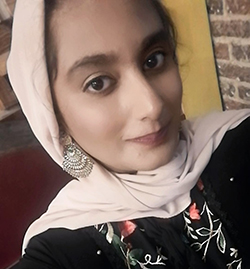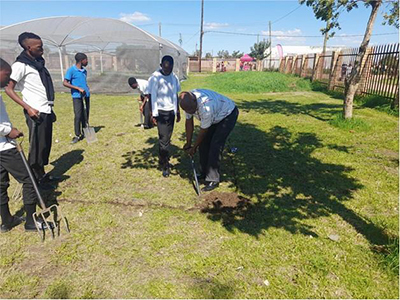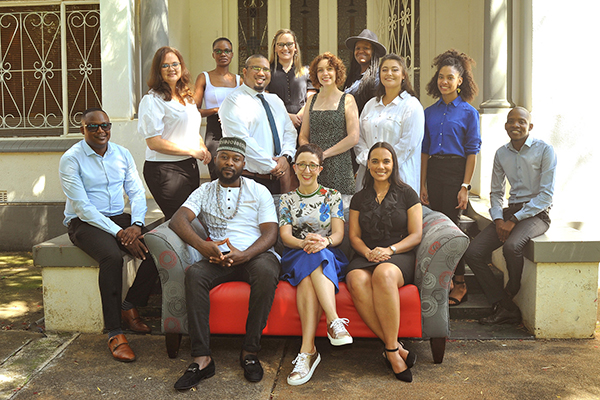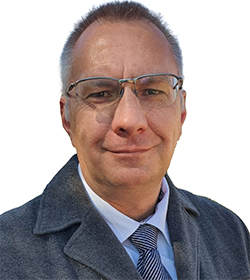South Africa faces difficult challenges that require the next generation of university graduates to be skilled leaders with extensive abilities to collaborate with communities to solve problems and create change.
Four North-West University (NWU) projects carried out in partnership with communities exemplify how collaboration with communities can be impactful.
Fundalula encourages students to pursue careers in geography

Nisa Ayob
A project headed by Nisa Ayob, a lecturer from the Faculty of Natural and Agricultural Sciences, carried out in collaboration with her third-year students, created an app dubbed Fundalula, which is aimed at helping secondary schools progress with geographic information systems (GIS).
The idea behind the project, which earned Nisa and her team the 2022 Sharing of Expertise Award, was to encourage students to pursue a career in geography, specifically in GIS. GIS are designed to capture, store, manipulate, analyse, manage and present various instances of spatial and geographical data.
“In 2016, the local government education authority listed GIS as one of the scarce and critical skills. This led to a demand for GIS specialists in the country to improve community development, disaster and business community planning, agricultural planning and environmental impact analysis. The subject group Geography and Environmental Sciences at the NWU’s Mahikeng Campus decided to adopt Tiego Tawana, a secondary school in Dithakong Village,” explains Nisa. The project is currently in its third year.
She adds that the initiative is in the process of selecting a new deep rural school in Mahikeng.
“My colleague Ncobile Nkosi and I also have a peer mentoring programme for first-year geography students. So, we are encouraging the mentees to participate in the GIS community engagement to enhance their academic experience.”
Service-learning is changing lives
Another project that is changing lives is a service-learning one led by Dr Johan Jordaan from the NWU Business School and the Faculty of Economic and Management Sciences. Dr Jordaan has been overseeing service-learning projects in his MBA Operations Management module since 2012.
So impactful has the concept been that between 2013 and 2022 more than 100 non-profit organisations (NPOs) have benefitted from it, and he has received the Engaged Teaching and Learning Award as established academic in the category of service-learning.
The project is an annual exercise. Dr Jordaan's students operate in study groups called syndicate groups, and the group mark constitutes a sizeable portion of their final pass mark. Dr Jordaan says there are 16 syndicate groups for this year.
“At the beginning of the semester, syndicate groups are instructed to select a community organisation (NPO). They then engage with the organisation and determine their most significant management needs. They must apply what they learn in my Operations Management class throughout the semester to help the organisation optimise their operations management,” he says.
He explains that there are currently 16 such projects running, ranging from old-age homes to animal shelters, a second-hand clothing bank at a school, AIDS shelters and welfare organisations, among other institutions with diverse needs.
Dr Jordaan says that all the projects have changed lives.
“After many years, some alumni are still involved in the organisation they chose during their MBA years. As long as I work for the NWU Business School, these projects will be part of my teaching effort,” he says.

Some of the 2023 MBA students busy with a vegetable garden for their NPO.
Pursuing environmental sustainability

The CLES research team, comprising chairholder Prof Anél du Plessis, postdoctoral fellows and PhD and master's-degree students.
Since its inception five years ago, the chair in Cities, Law and Environmental Sustainability (CLES) in the Faculty of Law at the NWU has spearheaded research into legal questions around urban development (cities) and the critically important pursuit of environmental sustainability in local areas.
Led by Prof Anél du Plessis, the research team includes the chairholder, postdoctoral fellows and PhD and master’s-degree students. Their work has earned them many kudos, with the latest being the NWU Institutional Excellence Award for Engaged Science of 2021/2022.
The team is not resting on its laurels. The past year has seen them engaging in research with the Konrad Adenauer Foundation. This project was devoted to information generation and sharing on the optimal use of local governance instruments in South African law for environmental sustainability in small and medium-sized municipalities.
Another project examined how local law and policy frameworks in a selection of southern African countries are aligned (or not) with climate mitigation imperatives.
“We are proud of what we have achieved so far, and we anticipate continuing our scholarly and outreach work well into the future. We look forward to maintaining our scientific and social impact beyond the first five-year cycle of the chair. The outcome of a recent application in this regard to the National Research Foundation of South Africa (NRF) is expected in the coming months,” says Prof du Plessis.
On 24 May, CLES will host its annual prestige lecture, which Danga Mughogho from the South African Cities Network will deliver.
Improving quality of life
Another project making waves is being run by Prof Stuart Piketh, with a team of 15 members collaborating across two faculties: the Faculty of Natural and Agricultural Sciences and the Faculty of Engineering.
The project recently received the Engaged Research and Innovation Award for their innovation in improving the quality of life of low-income communities by reducing household air pollution using low emission, semi-continuous coal stoves in Zamdela, Sasolburg.
All six stoves used in the initial project will be utilised again by the households during the 2023 winter season.
“The project has furthermore been expanded to a pilot project in which 50 stoves will be installed in Oranjeville in the Free State in 2023. We have gained access to the community by firstly meeting with the municipality’s air quality officer, then with the Metsimaholo local municipality and with the ward councillors, and lastly with the community themselves. After the community meeting, residents had the opportunity to put their names forward to be included in the project,” says Prof Piketh.
He adds that currently they are in the process of identifying 50 households to form part of the pilot project.
“Within the next month we will conduct surveys regarding the broader quality of life of the households and their energy usage patterns. This will be done to understand the utility derived from the stoves by the end of the project, and we will do a baseline air quality study in six households. The manufacturing of the stoves is well underway and they will be ready for installation from the end of May,” he says.

Prof Stuart Piketh
